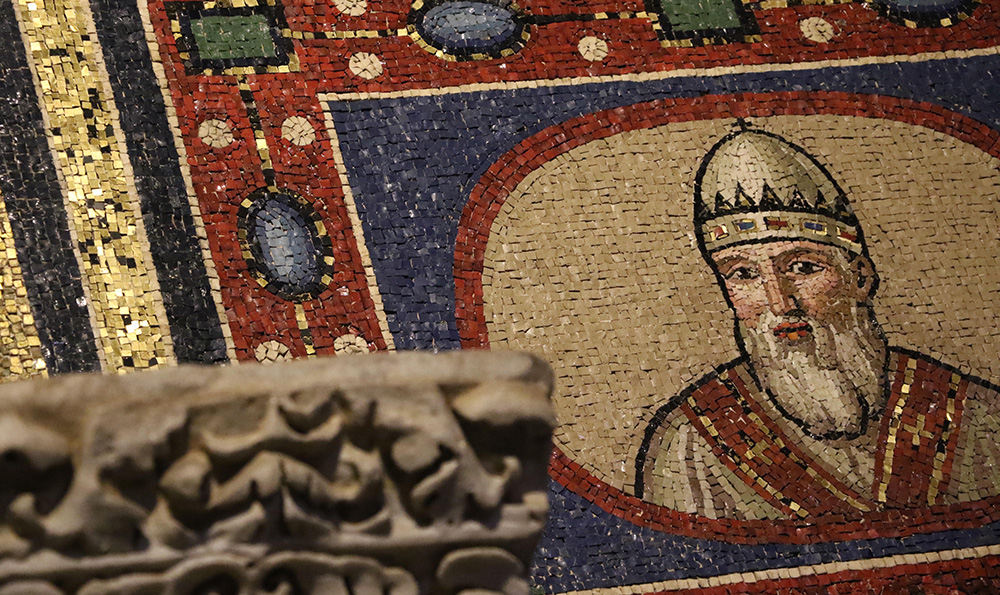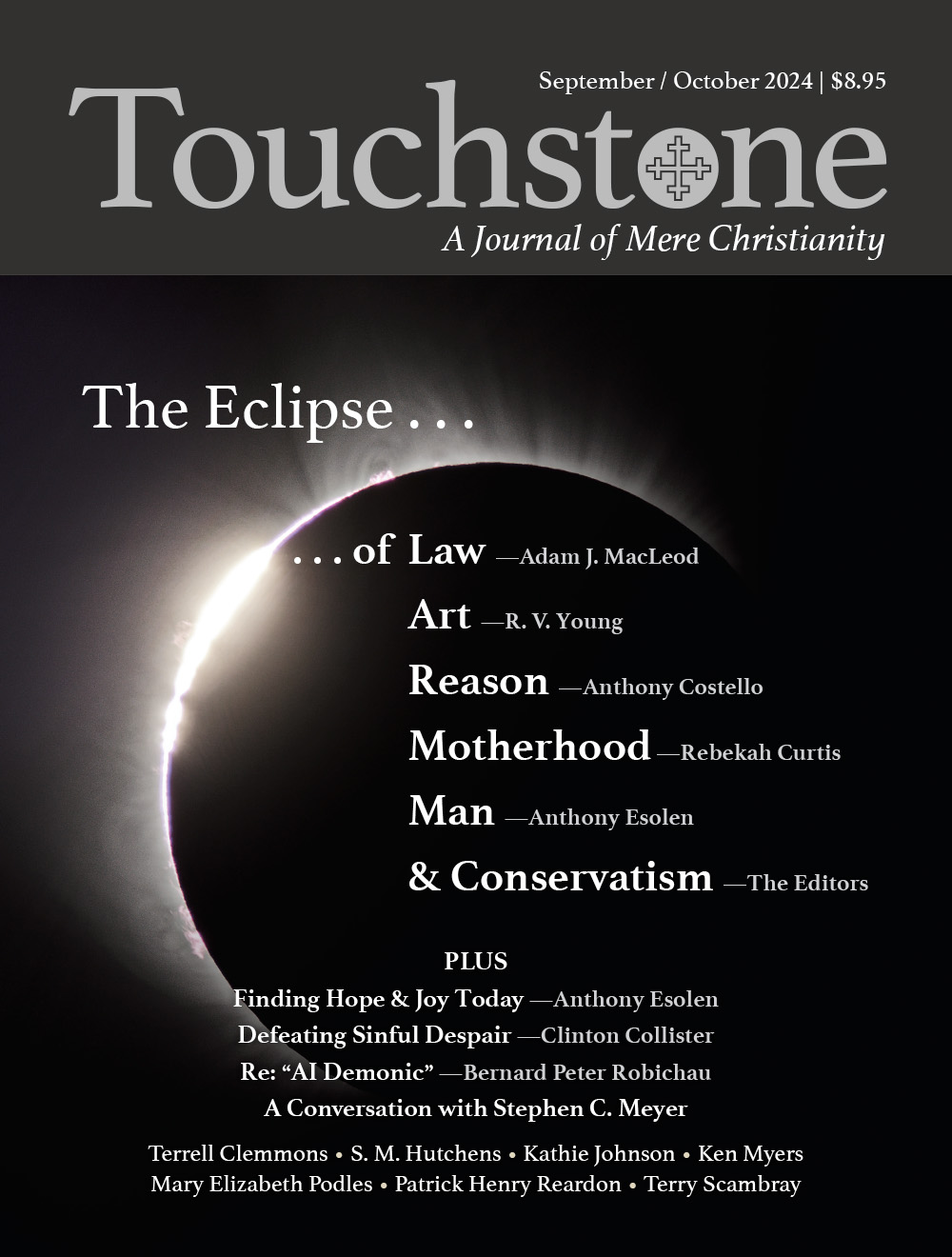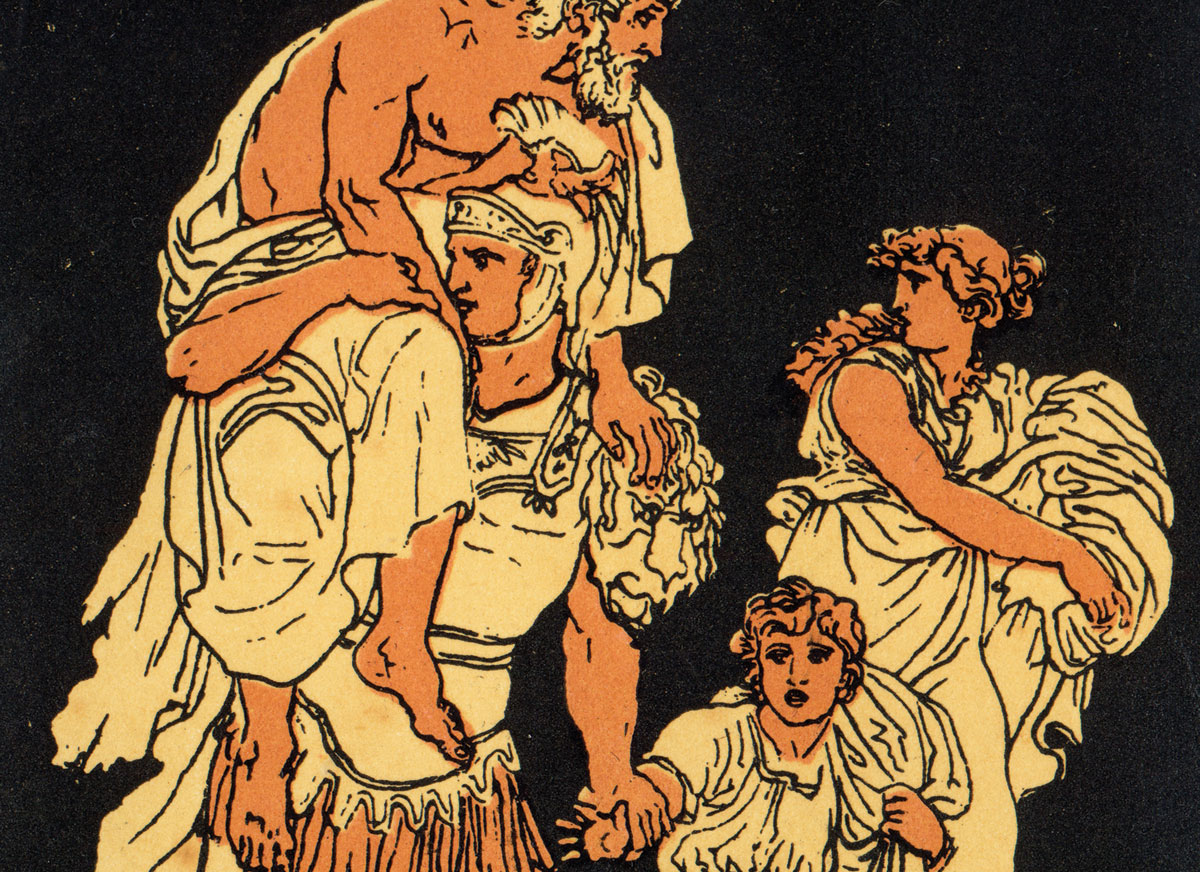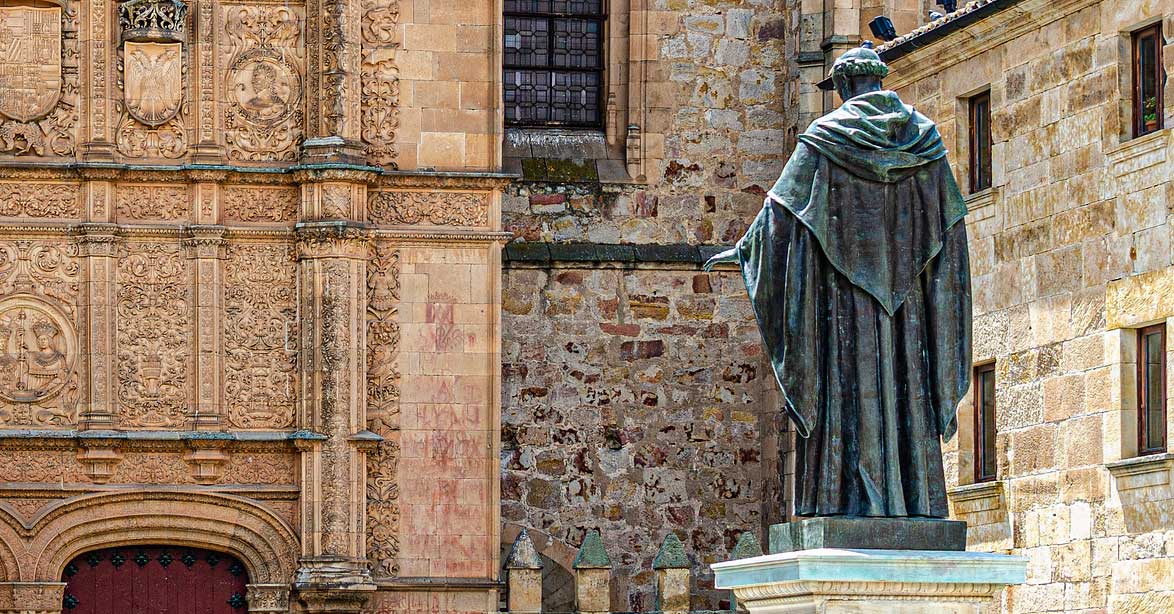Young Folly & Elder Hope
A Battle Plan for Peace While Growing Old
I turned 65 a short while ago. I am thinking about my growing old. Our meddlesome national government compels me to think about it, whether I like it or not, and mostly in unproductive and restless ways. But I want to think about it otherwise than to ask about preparing financially for a long and lingering debility—with the added care, in my case, of setting things well for our son David, who will never be able to live alone and take care of himself. Living alone is what we do more and more these days, whether or not we are old, alone, and restless. Still, I sense that many a worldly care is falling away from me, leaving only those that are most urgent, most important. I am thinking about and seeking a peace I have never known.
“Vanity, saith the Preacher, vanity,” says Robert Browning’s old sinner in “The Bishop Orders His Tomb at Saint Praxed’s Church.” He seems never to have really listened to that most bracing pessimist the world has known. For he is lying on his bed and hoping that his nine “nephews” gathered round him, actually his illegitimate sons by a beautiful mistress he once loved, will pony up the money for a fancy tomb where he will lie in his church, Saint Praxed’s, “the church for peace,” as he calls it.
Peace; what is it? For the bishop, it is not what Augustine calls it, “the tranquility of order,” since nothing in his life has been orderly. Bishops aren’t supposed to keep mistresses, after all, or take advantage of a church fire to smuggle away a precious lump “of lapis lazuli, / Big as a Jew’s head cut off at the nape, / Blue as a vein o’er the Madonna’s breast.” It is easy for us, who have abjured the high moral vision that Browning and the best of his fellow Victorians took for granted, to condemn the old man, as Browning surely does, but if our schools and colleges do not instruct young people in lust, avarice, and ambition, I have been asleep all of my adult life, and the most significant difference between the bishop and our elites is that the Renaissance man had a great deal of humane learning and fine taste, and ours do not.
So the bishop is restless on his bed of death, as he was restless in life. He believes he wants peace, and in a sense he does, despite himself, because God made us all for union with him, which brings the peace that passeth understanding. But what he really wants, and what many a pagan sentimentalist with a sprinkling of Christian lore expects heaven to be, is an unbroken continuation of the preoccupations of this life. In the bishop’s case, some of those preoccupations are ecclesial and sacred, though it is not their sanctity that moves him but their dependable repetition and their capacity to fill the senses and lull the mind. So he imagines himself lying on his tomb-top—in effigy or in the flesh; the dying man’s mind is wandering, so he loses the capacity to distinguish between the two—as the works of the church go on:
And then how I shall lie through centuries,
And hear the blessed mutter of the Mass,
And see God made and eaten all day long,
And feel the steady candle-flame, and taste
Good strong thick stupefying incense-smoke!
But other preoccupations are personal, such as his hatred of his predecessor, Gandolf, whose relative carelessness about high art seems to have gone along with a care for righteousness and holiness that our bishop cannot appreciate. “Old Gandolf with his paltry onion-stone,” cries the sinner, imagining, as he loses his hold on reality, that he is in Saint Praxed’s already and not in bed in his state-chamber—“Put me where I may look at him!” Why, the very summation of his life will be made evident, as he imagines it, when for all eternity he may glare at the effigy of Gandolf, watching for his old enemy to leer with envy at him as the bishop says he always used to do, “so fair she was.”
Vanity of vanities, says the Preacher. We pray that God will spare us from an unforeseen death, so that we may make provision for our final temporal duties and, more important, that we may prepare ourselves, as John Donne says, for making music in the choir of heaven, and so “tune the instrument here at the door” by repentance and by submitting ourselves to the merciful work of God.
It is what the dying bishop has not done, so that even though he is given plenty of time to prepare, we see that his attachments to earthly things disrupt his soul. He can hardly get out a complete sentence without an interruption of doubt, near to despair—“Ah God, I know not!”—or distrust in the sons he does not seem to have loved well, and who do not seem eager to accede to his elaborate funerary designs—“Sons, all have I bequeathed you, villas, all!”—or unseemly and even trivial concerns for dust—“My bath must needs be left behind, alas! / One block, pure green, as a pistachio-nut.” Browning causes us to smile at the bishop’s vanity, but how many of our concerns are for things neither as beautiful in themselves nor as useful as that bath carved out of green jasper!
The Ordinary Course of Human Works
Let me illustrate now by my own follies, which the Preacher should have put me wise to, let alone the Lord Jesus.
It was election day in November 1998. I was traveling with my family in Italy, confident, though I may say somewhat queasily confident, that the Republicans would sweep the field in the congressional elections, as a rebuke to President Clinton, that venal man of considerable and wasted intelligence. I had not reckoned on the backlash against the party for its impeachment proceedings against him, and no one had reckoned that, a few days before, an exceptionally handsome young gay man in Wyoming would be murdered in a drug deal gone bad, and that his murder, attributed to hatred and bigotry, would engender a reaction against the influence of the Christian faith on our political life. I recall how my heart sank when an Italian bartender, to whom I had tried to explain American political affairs the day before, said to me, with a knowing nod, “Avete visto, che il presidente è riuscito?”—“You’ve seen that the president has come out all right?” And I recall the frantic call I made to my sister, hoping that the Republicans would hold onto Congress, which they did, barely.
How strange it all seems now, how far away and unreal! Hindsight is a great teacher, if you will not remain a fool forever. The two Republican speakers of the house from 1994 to 2007, Newt Gingrich and Dennis Hastert, have showed themselves to be less than men of honor.
I will not get into the tawdry details, since they are not pertinent. I had placed undue trust in men, the machinery of politics, and what I saw as a growing conservative movement, which now appears like the remains of a sandcastle after the tide has come in and gone out again. When to say that a man cannot become a woman brands you as a hopeless reactionary, so that even “conservative” Republicans dare not say it, is there even a vague lump of a turret left? When sanity itself is gone, what is left to conserve?
But I did hope in saner things than one party’s fortunes in national and state politics. During those years I was also the head of an organization called the Rhode Island Guild of Home Teachers (RIGHT). At our peak we had around 400 families, and we sponsored all kinds of educational, athletic, and social activities, including, for a few years, a football club—for I urged the fathers to become more involved in their children’s education, and I had a special place in my heart for boys whom the schools had largely neglected. We sent out a substantial newsletter in the mail every month, a labor of considerable work, and for each of them I wrote an essay directed to the parents, never suspecting that it would be practice for writing for journals with a national scope.
What happened to RIGHT? What I had yet to learn was the ordinary course of human works. I stepped down as president in 2002, handing the reins over to an excellent man, more energetic than I was, more involved in getting things done—and less able, as I now see, to keep grumblers at bay by his presence. In 2004, the organization split in half, despite the efforts of professional counselors to keep the parties together. Christians all, and many a friendship broken that would never be knit up again.
A time to build, and a time to tear down; the old story. Dissension, division, and subdivision; the party of Hillel against the party of Shammai; the son of Zeruiah slaying the son of David against David’s own command, and then David’s advice to his son Solomon to see to the sons of Zeruiah; the men of Lot grumbling against the men of Abraham; the United States, come near to disintegration over the arrogance of the North and the slaveholding of the South; William Sherman, ambiguous hero of the devastation that gave the South the choice to surrender or starve, disowning his eldest son, Thomas, when the young man became a Jesuit priest; vanity of vanities, saith the Preacher.
Misplaced Hopes
I had more confident hopes in the homeschooling movement. I have not abandoned them all, but I see now that they were in part misplaced. Of course, homeschooled youngsters were far happier than their peers in school, better readers, certainly better writers, more vitally alive in the Christian faith, and—so long as they were at home—nearly untouched by the corruption of the world about them.
My first visit to Patrick Henry College, founded by and for homeschoolers, came in 2005, on the same trip when I first visited Christendom College, and my opinion of both schools is as high as it can possibly be. It delights me to know that the students at Patrick Henry, even when the school was spanking new, would defeat students at Harvard and my alma mater, Princeton, in debate. Of Christendom, I said later that I had expected to learn what a truly Catholic college looked like and that I had learned something more, what I had not expected: what a true college is, with real colleagues, professors and students engaging in a common and essentially interpersonal enterprise, aimed at what is true and good and beautiful.
Yet I see now that the gravitational pull of the world toward dissoluteness and dissolution was greater than I had thought. Children I myself taught when I was the head of RIGHT have been, as my daughter calls it, “absorbed,” assimilated into the vast, unmeaning world about them. Many have not married; many have married but have no children; many have fallen into this or that form of madness that exercises the nerves and empties the mind.
They join many Catholic students I taught at Providence College during those years when we seemed to be gaining on the world, a college more Catholic than when I had joined the faculty in 1990 and more fully committed to teaching the Western heritage of literature, philosophy, theology, and art. In 2005, we seemed on the cusp of becoming the largest genuinely faithful Catholic college in America. We had a new president, someone we had good reason to believe was going to keep the course. He did not. The Western civilization program, the school’s signature course, was curtailed and mangled; a large number of professors were hired in crucial departments who had no love for either the program or the school’s Catholic identity, or who were hostile to them; and identity politics rushed into the vacuum. Buildings went up; structures of faith and learning came down.
Meanwhile, an offshoot of homeschooling, the Christian classical school movement, seems to be energized and going strong. Distinctions are sharpening. On one side, I now regularly encounter people who are open in their dismissal of almost all art and literature created before 1900; ignoramuses, many of them in charge of schools, libraries, museums, and, alas, Christian congregations; others ensconced in “human resources.”
But on the other side, I also regularly encounter Christians who beg to learn more and more about what had been their culture or civilization, now in ruins about them, such as the young woman who wrote to me recently, asking how she can get, second-hand as it were, a real education in English and other European literature, because the college where she is enrolled is far less academically sound and sane and challenging than was her Christian high school. These people, almost the only ones around us who will know anything, will have to be agents of revival, lest the whole civilization, in reality if not in name, come to its shameful end, where “the lone and level sands stretch far away.”
No More Illusions
Nothing is new under the sun. Wulfstan called down his rhetorical thunder upon Englishmen at the turn of the first millennium after Christ, and the world did not come to an end—or rather, it did come to an end, as it is always coming to an end. Nations rise and nations fall. Five years after the death of the Wolf, as he signed himself, a certain fellow named William was born in Normandy, the son of the duke and his mistress. He was not going to remain in Normandy forever, this William.
I hear people saying that if a certain old blusterer is elected president, he will become a dictator, and there will be no more America as we knew it. As if the executive branch of the government had not long arrogated to itself most of our legislative and even some of our judicial functions! As if the judiciary had not primped itself up as the guardians of culture! Let not your heart be troubled, man of the left. America has long been falling, and little more unites us now than football and inertia. I wish it were not so, but wishing gets nothing done, and there is much to be done—much muddy and thankless work that almost no one sees is to be done, and that even fewer want to undertake.
Yet I do not feel angry, nor do I despair. Illusions bring despair. I have no illusions about my nation or about educational, social, or political movements. I have no more illusions, I think, about my own church, the Roman Catholic, considering it solely in its exercise as a human institution. In that exercise, things are such, and may always be, as Flannery O’Connor said, that we will have much more to suffer from the church than for the church. Our leaders are great hewers and layers-on of crosses. Sometimes they jeer for good measure. It is a feature of the peace I seek that I should hope for nothing from them.
Do we then give up the fight? By no means. Here we may heed the words that J. R. R . Tolkien believed best summed up the Germanic warrior ethos when the battle had gone against the Essex farmers and the old soldiers at Maldon, and the Viking raiders had made the seashore red with their blood: “Our will should be all the tougher, our hearts the keener, our minds more firm, as our strength dwindles.” “When the Son of Man returns,” said Jesus, “will he find faith upon the earth?” Peter must be sifted like wheat. The powers of darkness have their fling for a time, and times, and half a time. The battle is the Lord’s; our duty is to fight, and only the Lord knows what may come of the lone soldier’s courage against all odds, when whole battalions seem to have been crushed or to have connived at their own defeat. Ours is a call to suffer: the faithful Cross should teach us that.
And still—there is a time for war, and a time for peace such as even the Preacher might have known, bitter consoler as he is. I am here speaking of that early evening time between the hot afternoon concerns of this world and the so-called Last Things: death, judgment, heaven, and hell. We may call them the Penultimate Things. I wish I had been a better son, brother, husband, father, and friend.
I have some opportunity still to make amends. The troubles of the world have pressed upon my mind, like the great arms of a vast automaton, and they have kept me from that untroubled and pregnant silence so necessary for prayer, because, if I may be honest, it is easier to be embroiled in the world than it is to pray, if only because, in the former, it is things that are broken, but in the latter, it is your heart.
The Beauty of Man & Woman
The world that God made is filled with beauty, sometimes sweet and gentle, sometimes terrible and sublime, and the best that man has done, in his art that deigns to follow the Creator, is also a source of wonder, a “joy forever,” as Keats says. Yet we live in a time remarkable for wealth of means and poverty of result; never have so many done so little with so much at their disposal. And the thing about embroilment in the world is that you must shout to be heard, and no one can share the beauty of a single leaf by shouting about it, or of a single movement of the human heart. “Late have I loved you, Beauty so ancient and ever new,” cried Augustine, who was twenty years younger than I am now when he uttered that cry, and more than thirty years younger when he was first captivated by the divine Beauty he describes.
In a better time, I know, I need not have spent so much of my life fighting for sheer human normality. In a better time, I need not have written so much to bring to people an awareness of the beauty, both divine and human, our world has forgotten or never known.
I have returned to writing poetry; I never should have left it. I have resumed the humble task of teaching poetry—in a variety of forms, including classic films—to a wide audience. I never should have been distracted from it. Great fields of poetry are still unknown to me, even in the languages I read, and swift to its close ebbs out life’s little day. My library is stacked with books I shall never open. It must be so. I wish to enter no vain and frenetic race against time. But that each day should be more deeply rooted in beauty—that will be no race, but the fruit of patience and stillness.
And what is the most beautiful creature in all the created world? Browning’s old bishop had an eye for the beauty of a woman, the unnamed mother of all his nine illegitimate sons, yet it was a strangely deficient appreciation, as the poet shows us. For when the bishop’s mind turns to the things he loved in this world, she is there, but in a list of things, confused, out of place, leading to a climactic anticlimax—the bishop’s gleeful disdain for the clumsy Latin inscription on Gandolf’s tomb:
And as yon tapers dwindle, and strange thoughts
Grow, with a certain humming in my ears,
About the life I lived before this life,
And this life too, popes, cardinals, and priests,
Saint Praxed at his sermon on the mount,
Your tall pale mother with her talking eyes,
And new-found agate urns as fresh as day,
And marble’s language, Latin pure, discreet,
—Aha, ELUCESCEBAT quoth our friend?
No Tully, said I—Ulpian at the best!
There she is, lost amid ancient urns and Cicero. Part of my work, such as I believe was never needed before our time, is to remind people of the beauty of man and woman, of man as man, made for woman, and of woman as woman, made for man; to remind them of it, or perhaps to show them it for the first time. It is an age when such beauty, both physical and spiritual, is ignored, traduced, or disfigured. Quite aside from questions of morality, the sheer ugliness, even beastliness, of much of what we have accepted as “love,” meaning sexual or para-sexual relations, should appall us. But we do not notice the vandalism, because we have so little experience of the pristine. I have been given, in a bad time, to see a little of it, and to know more of it vicariously, through old poetry and art. I must then do much of my remaining warfare with the sword of beauty, and of this human beauty in particular.
Brought to the Verge
Which brings me into the precincts of joy.
I have never been gregarious. When I was a boy, I walked in the woods alone with my dog, and sometimes, in the dead winter, I would stand atop an escarpment of glacier-tumbled rocks, looking out over the crazy layout of my town’s streets far below. I could see the steeple of the church, a place of comfort for me; and the snaking river, hardly more than a good-sized brook; and houses with their chimneys smoking, some of them from furnaces still fired with coal, as ours was till I was ten. I was lonely, yet not utterly so, since I had my family, and all my many cousins, and my dog, and now and then, in the midst of that same loneliness, I felt close to God, and there was something like the solemnity of joy in my heart, especially if the sun shone full on the snow crystals glinting in the ten-degree air.
Therefore, as I grow old, I try to remind myself that the woods and the fields are calling, away from the hurly-burly of the world and its bloody battles, its shouting, its madness. It is not that there is romantic magic in the natural world, but that it is a real world and not a carnival of idols, and the finger of God is upon it, and its silence speaks.
“Peace, peace seems all,” says the old bishop, who then immediately pitches himself into a rage at Gandolf’s having “cozened” him out of a choice spot in the southern corner of the church to set his tomb in. Peace of mind, peace of heart; more than rest from ignorant and angry and deluded people crying out in the public square or from the steps of the churches; a peace like that moment before the old Mass began, when the priest was still preparing, and he said, “Introibo ad altare Dei”(“I shall go in unto the altar of God”), and the altar boy responded, “Ad Deum qui laetificat iuventutem meam” (“To God, who brings joy to my youth”). This is not yet that full, active, and joyful restfulness that the blessed saints know as life, and that in abundance. It does not, as I say, yet pass the understanding. But it does bring it to its verge, with the great sea beyond.
Anthony Esolen is Distinguished Professor of Humanities at Thales College and the author of over 30 books, including Real Music: A Guide to the Timeless Hymns of the Church (Tan, with a CD), Out of the Ashes: Rebuilding American Culture (Regnery), and The Hundredfold: Songs for the Lord (Ignatius). He has also translated Dante’s Divine Comedy (Random House) and, with his wife Debra, publishes the web magazine Word and Song (anthonyesolen.substack.com). He is a senior editor of Touchstone.
subscription options
Order
Print/Online Subscription

Get six issues (one year) of Touchstone PLUS full online access including pdf downloads for only $39.95. That's only $3.34 per month!
Order
Online Only
Subscription

Get a one-year full-access subscription to the Touchstone online archives for only $19.95. That's only $1.66 per month!
bulk subscriptions
Order Touchstone subscriptions in bulk and save $10 per sub! Each subscription includes 6 issues of Touchstone plus full online access to touchstonemag.com—including archives, videos, and pdf downloads of recent issues for only $29.95 each! Great for churches or study groups.
Transactions will be processed on a secure server.
more on Poetry from the online archives
more from the online archives
calling all readers
Please Donate
"There are magazines worth reading but few worth saving . . . Touchstone is just such a magazine."
—Alice von Hildebrand
"Here we do not concede one square millimeter of territory to falsehood, folly, contemporary sentimentality, or fashion. We speak the truth, and let God be our judge. . . . Touchstone is the one committedly Christian conservative journal."
—Anthony Esolen, Touchstone senior editor











